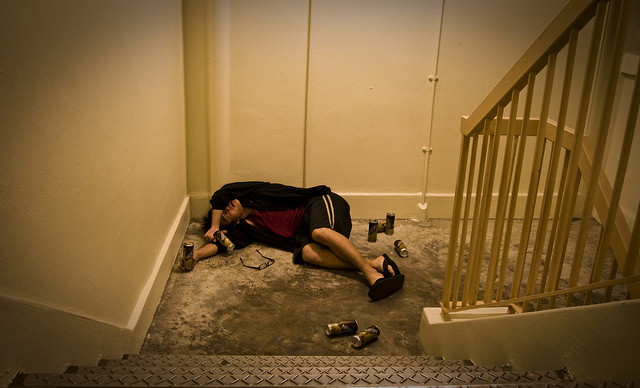Each weekend, you stumble down to the cafeteria or a diner to wash away the previous evening’s sins. You order eggs, bacon and some toast. Grease sits in little pools in the ripples of the bacon. You down three sugary coffees. When you’re done, you wipe the oil on your pants. You feel the food coma coming on. This seems the easiest way to overcome the pain you currently feel, but the food’s bad for you and you’re probably eating too much of it. As students, it’s sometimes tricky to know how to eat well and find the time and money to do so. So every Sunday this semester, nutrition students Anna Richardson and Melissa Danchak will bring you a column on theeyeopener.com about various issues of nutrition and some simple recipes that you can make for cheap.
Ah, caffeine. As students, we tend to have a love-hate relationship with the drug. It keeps us awake through those three-hour morning lectures (sometimes) and helps us plow through study marathons or pull all-nighters. Yep, caffeine can be pretty useful at times. But how much is too much?
Health Canada states that caffeine shows no adverse effects at moderate intake (400 mg, or about 2-3 cups of coffee per day). The jury is still out on this one: Some studies show decreased rates of cancer and other benefits of ingesting caffeine, and others show precisely the opposite. For most of us, the problem comes in when we start abusing it – like caffeine pills, multiple energy drinks or using coffee as a replacement for a meal. Caffeine is no substitute for sleep and good nutrition, which can help you stay awake and energetic without the caffeine shakes.
Caffeine works by binding to receptors in the brain that usually bind a chemical that causes drowsiness and sleep, called adenosine. The adenosine is then unable to bind to its receptors, reducing feelings of fatigue. While caffeine is in your body increasing your brain activity, your body gets a little confused and releases adrenaline. This will cause:
- Increased heart rate
- Dilated pupils
- Constricted blood flow
- Increased blood sugar
- Feelings of energy and alertness
After a few hours, the caffeine will make its way out of your system and you may feel tired again – that dreaded caffeine crash.
Helpful tips for better caffeine habits and energy levels
- Try to get enough sleep, and keep a regular sleep schedule when possible.
- When drinking lots of caffeinated beverages, drink a glass of water for each cup. Caffeine is a diuretic and can dehydrate your body.
- Eating a balanced meal can improve your energy levels and mental focus. Protein is especially helpful.
- Exercise is a natural stimulant and can boost energy levels!
- Choose caffeinated products without all the extras: Coffees, teas and energy drinks can come with a giant serving of refined sugars and saturated fats.
- If cutting back on caffeine, cut back slowly to reduce withdrawal symptoms
- Try not to consume caffeine after lunch as not to disrupt your sleeping patterns
- Try decaf coffees, teas or coffee substitutes for the taste without the zing
Caffeine levels of common products
Check out this table to see how much caffeine is packing in your favourites!
|
Product |
Serving Size |
Milligrams (mg) of Caffeine |
| Coffee, brewed |
8 oz., 1 cup, or 250 mL |
118 – 179 |
| Coffee, instant |
8 oz., 1 cup, or 250 mL |
76 – 106 |
| Coffee, decaf |
8 oz., 1 cup, or 250 mL |
3 – 5 |
| Tea |
8 oz., 1 cup, or 250 mL |
30 – 50 |
| Cola Beverage, regular and diet |
12 oz. (1 can) |
36 – 50 |
| Chocolate Milk |
8 oz., 1 cup, or 250 mL |
8 |
| Hot Chocolate |
8 oz., 1 cup, or 250 mL |
5 |
| Milk Chocolate+ |
1 oz. or 28 g |
7 |
| Dark Chocolate* |
1 oz. or 28 g |
19 |
Source: Health Canada
+A regular sized milk chocolate bar of 100 g has about 25 mg caffeine.
*A regular size dark chocolate bar of 100 g has about 68 mg caffeine.
Student favourites
See how much you’re getting around campus.
- Grande Starbucks brewed coffee: 330 mg
- Medium Tim Hortons coffee: 140 mg
- Monster or Rockstar Energy Drink: 160 mg
- Red Bull: 80 mg












Leave a Reply